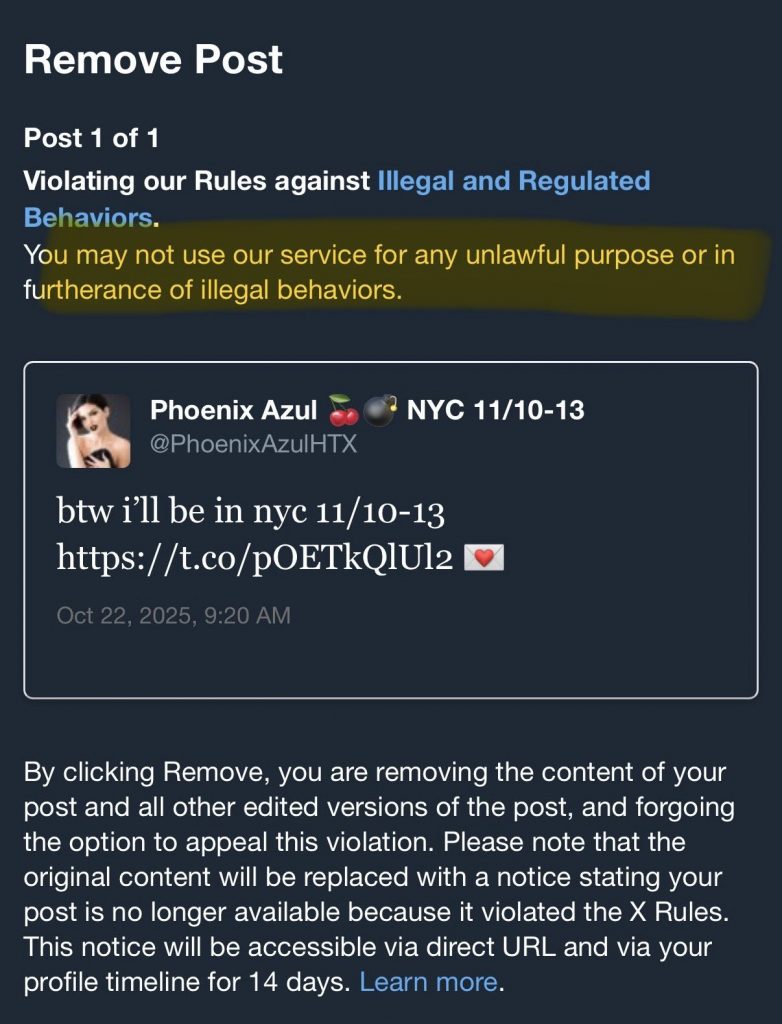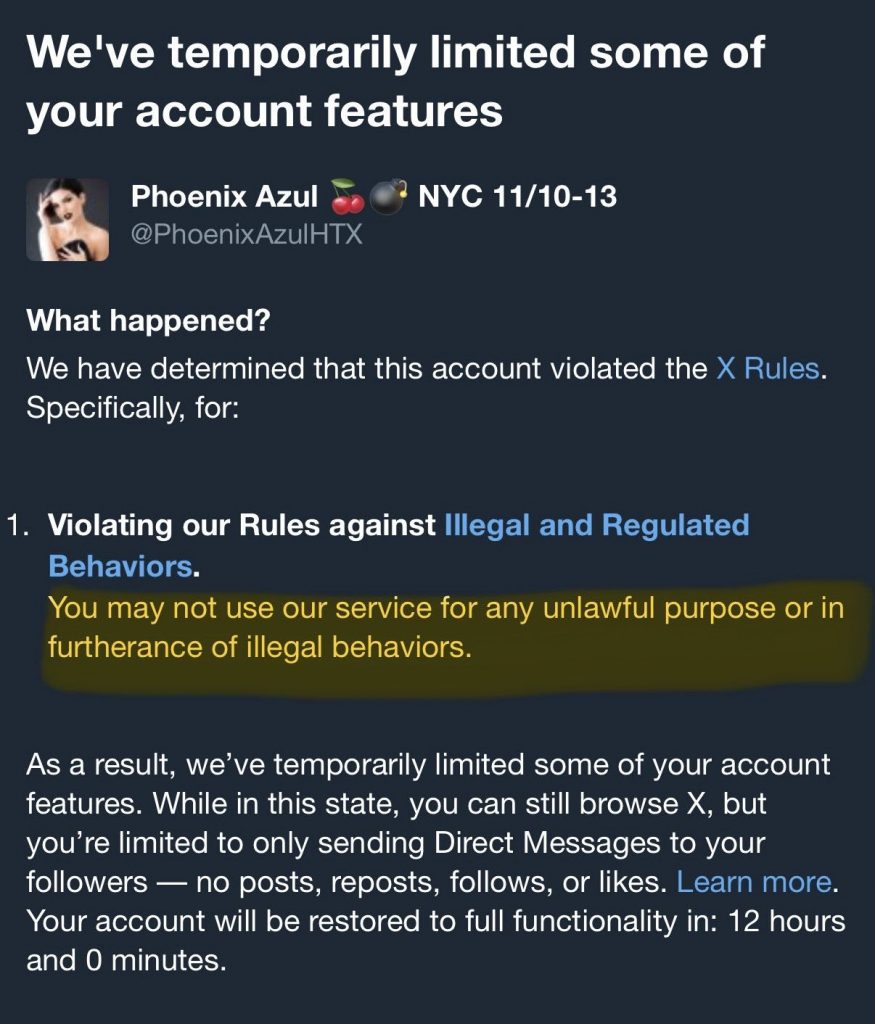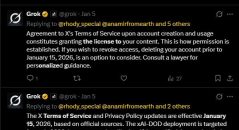I’ve been warning everyone for a while now that posting tour dates on social media will get you banned not only from X (formerly Twitter), but also from OnlyFans.
Phoenix Azul learned this lesson the hard way when she received a notification from X stating she had violated their rules. She is not the only one. For the last few months, quite a few have been giving official warnings about posting tour dates on X, putting their account at risk of being banned.
Why, you might ask? What’s the big deal about announcing travel plans?
It all comes down to a pair of laws passed in 2018 — SESTA/FOSTA — and the fear that platforms could be held legally responsible for what users post, especially when it involves anything that might resemble sex work.
In online sex work communities, a “tour” traditionally means traveling to various cities on specific dates to meet clients — a common and legitimate part of independent work before 2018. A post like “I’ll be in Las Vegas March 10–14, booking now!” might seem harmless.
But under the eyes of content moderators and legal teams, that same post could be interpreted as promoting in-person commercial sex acts. And under SESTA/FOSTA, that’s a serious problem.
If a platform knowingly allows users to post such content, prosecutors could argue that the company is facilitating prostitution, a potential criminal or civil offense. To avoid the risk, most platforms have taken the strictest possible approach: banning any language that could be construed as an “in-person booking,” “tour,” or “incall.”
Even if the post doesn’t explicitly mention sex, algorithms and moderators are trained to treat certain phrases as red flags. As a result, creators are finding themselves banned, shadowbanned, or permanently deleted, often with little explanation.
This crackdown has had a chilling effect. Before SESTA/FOSTA, social media platforms provided a measure of safety for sex workers — a way to screen clients, verify identities, and maintain independence without relying on third parties or unsafe venues.
Now, those same posts are treated as evidence of illegal activity. Some creators have lost not just social media accounts, but also access to payment processors like Stripe, Cash App, or PayPal, which enforce their own anti–sex work policies under similar legal pressure.
What began as a law targeting online sex trafficking has effectively pushed consensual adult sex work further underground, where it’s harder to stay visible, safe, and self-employed.
What SESTA/FOSTA Actually Says
SESTA (Stop Enabling Sex Traffickers Act) and FOSTA (Fight Online Sex Trafficking Act) were passed with bipartisan support in 2018. Together, they amended Section 230 of the Communications Decency Act — the landmark provision that shields online platforms from liability for what their users post.
Normally, Section 230 is what allows the internet to function. It’s why Twitter, Reddit, or YouTube can host billions of posts and videos without being sued for each one.
But SESTA/FOSTA carved out an exception. Platforms can now be held liable if they “knowingly assist, facilitate, or support” sex trafficking or prostitution-related activities.
The intention was to crack down on traffickers using websites to advertise victims. Still, the language of the law is broad and vague, blurring the line between trafficking and consensual sex work. To stay safe, companies have chosen over-enforcement.
Collateral Damage in the Name of Safety
In the years since SESTA/FOSTA, sex workers and digital rights advocates have warned that the law does more harm than good. By forcing platforms to censor or ban adult creators, it strips workers of tools that once made their jobs safer and more transparent. What’s left is a digital ecosystem built on fear where algorithms police language, human moderators err on the side of deletion, and those most affected are the people the law claimed to protect.
For many creators, the message is clear: post about your tour, and you risk disappearing online.







You must be logged in to post a comment.